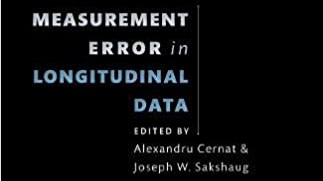A key advantage of longitudinal data collections is the ability to measure change over time by repeatedly asking the same questions to the same respondents. Estimations based on such longitudinal data, as well as other designs that incorporate repetitions of the same questions, generally rely on the assumption that at each point of data collection, respondents answer the questions independently of their previous responses. This assumption implies that respondents either do not remember their previous responses, or that they at least do not use this information in forming their later responses. This is a strong assumption, given that data collections are becoming more and more frequent, giving respondents less time to forget earlier responses. If respondents do, however, remember both being asked the same question and their previous response, they may be influenced by this information. This form of bias is known as a memory effect. In this chapter, we conceptualize the potential role of respondents’ memory when answering survey questions and propose a model of the cognitive response process that takes potential memory effects into account. This is supplemented with the literature on the cognitive response process, the sparse existing research on memory effects, as well as adjacent literature on dependent interviewing and question order effects. We conclude the chapter by identifying gaps in this literature and highlighting areas that require additional research to further our understanding of memory effects in longitudinal survey research.
Book Chapter published in “Measurement Error in Longitudinal Data”, edited by Alexandru Cernat and Joseph W. Sakshaug

Credit: OUP